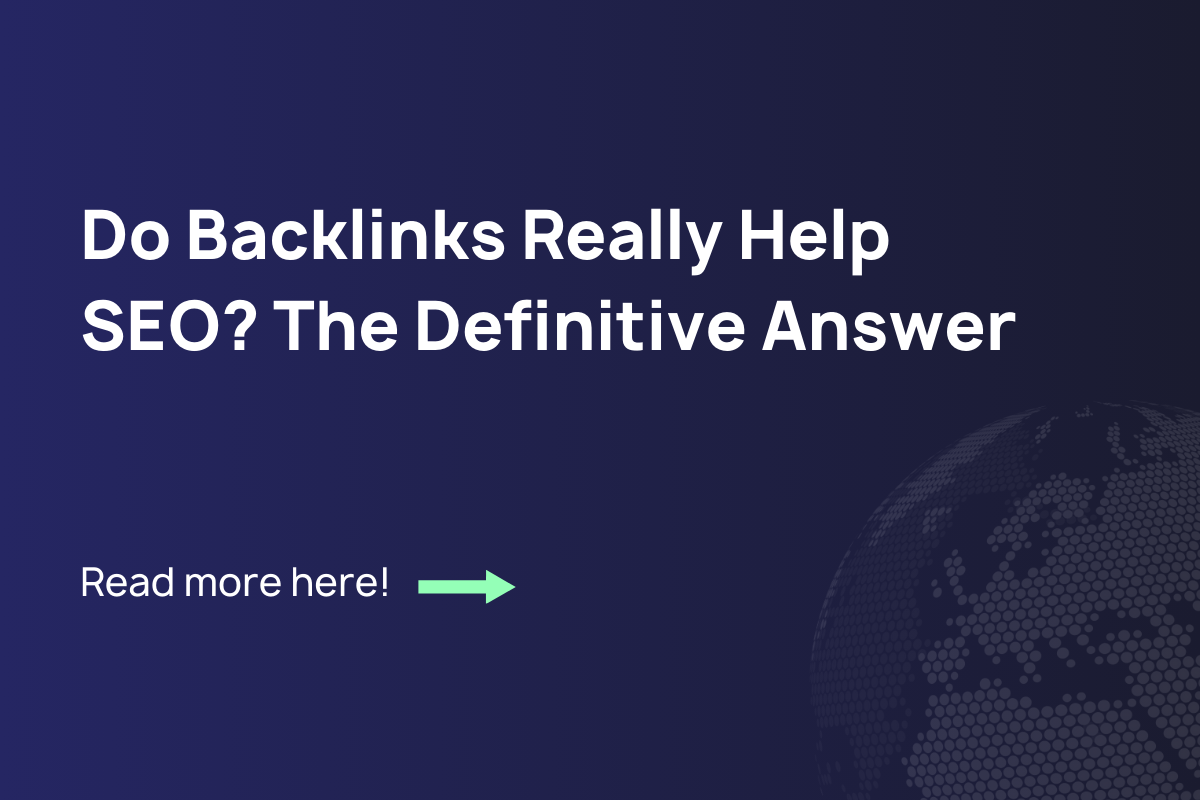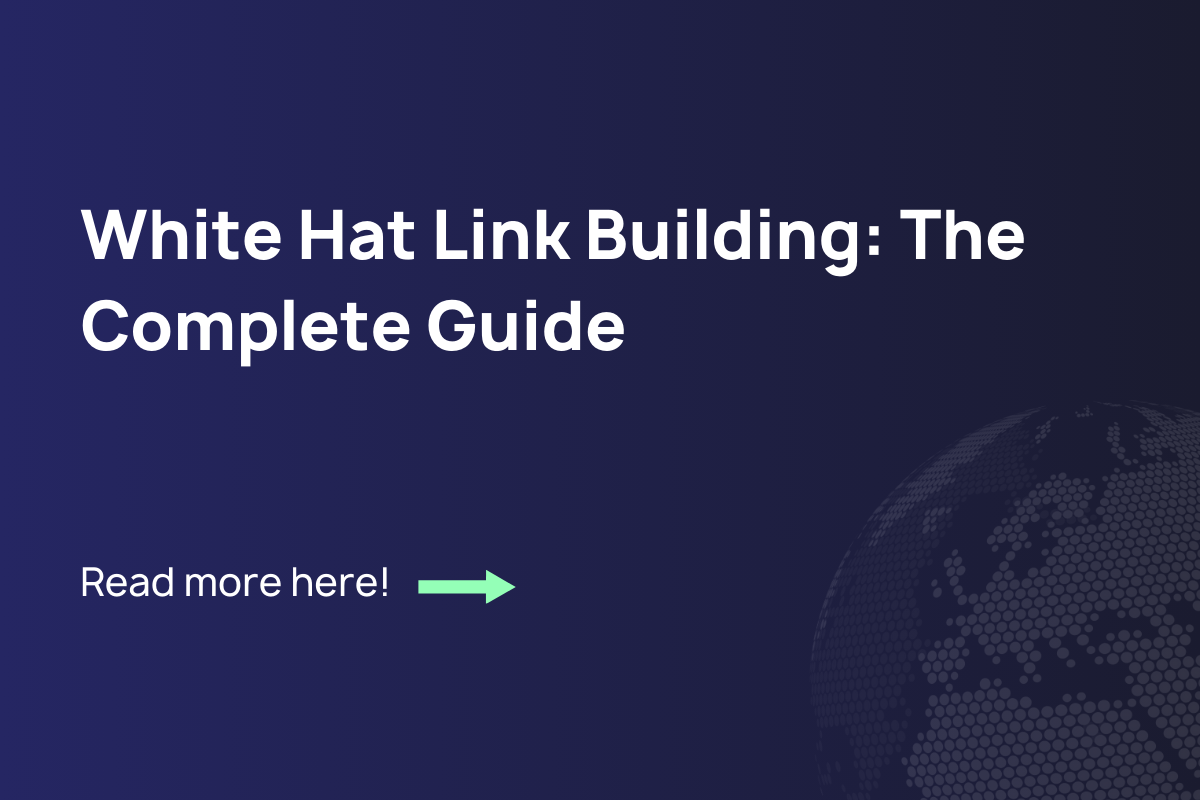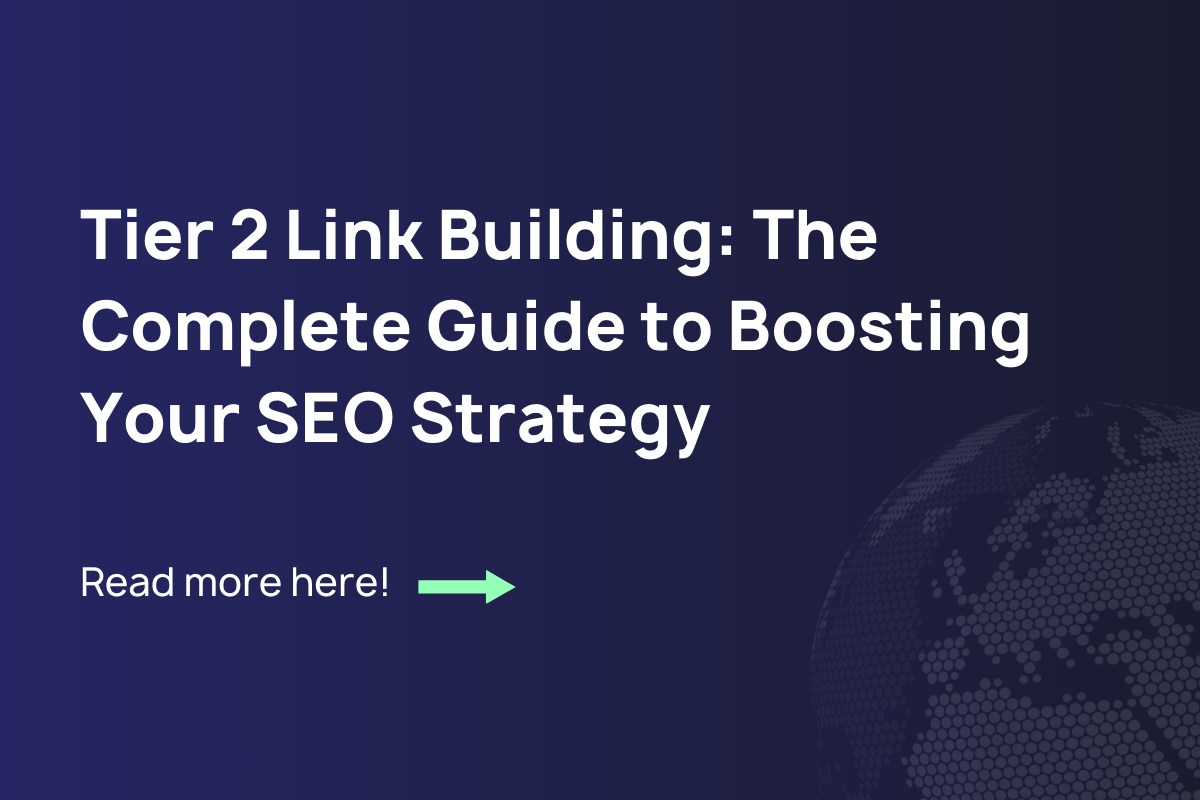Picture this: You’ve spent countless hours perfecting your local business website. Your service pages shine. Your about page tells your story beautifully. Yet somehow, when people in your area search for what you offer, your competitors keep showing up while you’re stuck on page two or worse.
The missing piece? Local link building.
It’s like being new in town and having respected community members vouch for you. Each local link is a digital recommendation that tells Google, “This business belongs in our neighborhood’s search results.”
In this guide, we’ll walk through everything you need to know about building these powerful local connections—from understanding why they matter to implementing proven strategies that won’t drain your resources or patience.
Let’s transform your local digital presence, one quality link at a time.
Understanding Local Link Building
What is Local Link Building?
Local link building is the strategic process of earning backlinks from websites that have relevance to your geographic area. Unlike traditional link building that casts a wide net, local link building focuses specifically on creating connections within your community’s digital ecosystem.
Imagine you run a bakery in Portland. A link from a national baking blog helps your general authority, but a link from the Portland Business Journal or a popular Portland food blogger sends Google a powerful signal: “This bakery is a legitimate part of Portland’s business landscape.”
These location-specific signals help search engines understand not just what you do, but where you do it—critical information for appearing in local search results when nearby customers need your services.
Why Local Link Building Matters for Businesses
When we started working with a family-owned hardware store in Cincinnati, they were invisible in local search despite being a community fixture for 30+ years. Their competition—big box stores with massive marketing budgets—dominated the results.
Within six months of implementing local link building strategies, they ranked on the first page for their primary keywords and saw a 43% increase in website traffic from local searchers. Here’s why local link building created such a dramatic shift:
1) Better Audience Targeting
Local links connect you directly with people in your service area. When someone reads the Cincinnati Home Improvement Blog and clicks a link to your hardware store, they’re already nearby and interested in what you offer—the perfect potential customer.
2) A Quality Source of Backlinks
Local links often come from established, trusted websites with strict editorial standards. One high-quality link from your city’s Chamber of Commerce can outweigh dozens of generic directory links in terms of SEO value.
3) Building Real Relationships
Unlike anonymous link schemes, local link building creates actual business relationships. The food blogger who links to your restaurant might become a regular customer. The community newspaper that features your business might call you for expert quotes in future stories.
A client of ours who runs a boutique fitness studio got a link from a local health magazine, which led to the editor becoming a member, which led to a monthly column, which led to consistent exposure to exactly the right audience.
4) Local SEO Advantage
Google’s algorithm gives extra weight to local signals when determining which businesses to show in local search results. Each relevant local link helps convince Google that you’re a legitimate, established business in your area—worthy of appearing when nearby customers search.
How to Find Local Link Building Opportunities
Before diving into specific tactics, let’s uncover the local link opportunities already waiting for you.
Discovering Your Competitors’ Local Links
Why start from scratch when your competitors have already done some of the work? Here’s how to mine their link profiles for local gold:
First, identify your top 3-5 local competitors who rank well in search results. Then use a tool like Semrush, Ahrefs, or Moz to analyze their backlink profiles. Filter results to focus on links from websites in your geographic area and look for patterns—which local sites link to multiple competitors?
We once helped a dental practice discover that every competitor on the first page had links from the same three local health organizations. Within a month of securing those same links, they jumped from page three to page one.
Examples of Great Local Links
Not all local links are created equal. Here are examples worth pursuing:
– Local news sites provide coverage in your city’s newspaper or news website.
– Industry-specific local directories like tourism boards for hotels or healthcare directories for medical practices offer targeted visibility.
– Community organization websites such as Chambers of Commerce, neighborhood associations, and local nonprofits provide authoritative local signals.
– Regional blogs focused on food, parenting, or lifestyle in your area can drive highly relevant traffic.
– Local business partners and complementary businesses you work with offer mutual benefit opportunities.
– Educational institutions like nearby colleges, universities, or school districts typically have high-authority domains.
The best local links naturally integrate your business into the community fabric. They don’t just boost rankings—they drive actual local customers to your door.
14 Local Link Building Strategies That Actually Work
Now that you understand the landscape, let’s dive into actionable strategies you can implement starting today.
1) Add Your Business to Local Directories
While low-quality directory spam can harm your SEO, selective placement in reputable local directories provides valuable citation signals and link opportunities.
Start by prioritizing your Chamber of Commerce, Better Business Bureau, and industry-specific local directories. Ensure NAP (Name, Address, Phone) consistency across all listings and complete your profiles fully, including business descriptions, hours, photos, and categories.
Pro tip: Use a tool like Semrush’s Listing Management to identify and correct inconsistencies across multiple directories.
2) Reach Out to Local Media
Local journalists and publishers constantly need stories and sources. Position yourself as a valuable resource, not just another business seeking exposure.
When a home renovation contractor we worked with offered to provide expert commentary on rising lumber prices during the pandemic, they secured coverage in three local publications—each with a valuable backlink.
Follow local reporters covering your industry on social media, respond to journalist queries on HARO (Help A Reporter Out) with a local angle, and pitch genuinely newsworthy stories about your business.
3) Create a Local Resource Guide
People love comprehensive guides that solve specific local problems. Create content that showcases your expertise while serving your community.
Examples that have worked well for our clients include “Complete Guide to Winter Hiking Trails in [City]” for an outdoor equipment shop, “Best Family-Friendly Restaurants in [Neighborhood]” for a real estate agent, and “[City]’s Ultimate Home Maintenance Calendar” for a home services company.
A local insurance agency created a guide to preparing for regional natural disasters, which earned links from the city government, local news, and community organizations—all while positioning them as community-focused experts.
4) Sponsor Local Organizations and Events
Strategic sponsorships deliver marketing visibility, community goodwill, and quality backlinks. Look for organizations aligned with your values and customer base, focus on smaller, more targeted opportunities where your sponsorship makes a bigger impact, and ensure link inclusion is part of the sponsorship agreement.
Pro tip: Rather than just the homepage, request links to relevant service or location pages to maximize SEO benefit.
5) Leverage Educational Connections
Educational institutions typically have high-authority websites that can provide powerful link signals. Offer student internships or mentorship programs, create scholarships (they don’t need to be huge—even $500 can work), connect with alumni networks if you or your team attended local schools, and provide guest lectures or workshops.
A small marketing agency we consulted created a $1,000 annual scholarship for marketing students at the local university, earning a valuable .edu backlink and establishing recruiting relationships with promising students.
6) Monitor and Claim Unlinked Mentions
Sometimes local websites mention your business without linking to it—these are golden opportunities for easy links. Set up Google Alerts for your business name and key personnel, use tools like Semrush or Ahrefs to find unlinked mentions, and contact website owners with a friendly request to add a link to existing mentions.
When reaching out, focus on how the link adds value for their readers: “We noticed you mentioned our annual community cleanup event—adding a link would make it easier for your readers to find registration information.”
7) Create Location-Specific Landing Pages
For businesses serving multiple areas, dedicated location pages provide link targets for area-specific outreach. These pages should include information specific to that location, local team members, community involvement in that area, location-specific testimonials, and relevant local resources.
A home services company we worked with created individual pages for each suburb they served, including neighborhood-specific service information. This gave them targeted pages for local link building in each community.
8) Partner with Local Bloggers
Local bloggers often have engaged audiences and are more accessible than traditional media. Identify bloggers relevant to your industry and location, build relationships before asking for coverage, offer genuine value—exclusive access, free products/services to review, or expert information, and consider collaborative content that serves both audiences.
A restaurant client provided a local food blogger with a behind-the-scenes kitchen tour and chef interview, resulting in a detailed blog post with multiple links that drove both traffic and reservations.
9) Host and Promote Local Events
Events create natural opportunities for links from event calendars, local media, and partner organizations. Create events that genuinely serve community interests, partner with complementary local businesses to expand reach, submit your event to local calendars and listings, and create dedicated event pages on your website as link targets.
During the event, capture photos and video to create post-event content that can attract additional links.
10) Become Active in Local Online Communities
Meaningful participation in local online forums, Facebook groups, and community websites builds your reputation while creating organic link opportunities. Join relevant local groups, focus on providing helpful information, not promoting your business, answer questions in your area of expertise, and share valuable resources (including occasional links to your own relevant content when truly helpful).
11) Reclaim Lost Links
As websites evolve, links sometimes disappear. Reclaiming these lost links can be easier than building new ones. Use tools like Ahrefs to identify broken backlinks, contact website owners to restore valuable lost links, and provide the exact location where the link should be added.
A simple, friendly email like: “We noticed your recent website update removed the link to our resource guide that your readers have been using. Would you mind restoring it to help them access this information?”
12) Develop Relationships with Local Influencers
Beyond bloggers, consider other local individuals with digital influence in your community. Identify micro-influencers in your geographic area, focus on quality of audience rather than quantity, build genuine relationships through mutual value, and create collaborative content or special offers for their audience.
A boutique clothing store we advised partnered with a local style influencer for a store event, earning links from the influencer’s blog and social platforms while drawing new customers to the physical location.
13) Create a Research Report on Local Trends
Original research about your local market positions you as an authority while creating a highly linkable asset. Examples include real estate market analysis for specific neighborhoods, local consumer spending trends relevant to your industry, and environmental or community impact studies.
A financial advisor created an annual “State of Small Business” report for his city, surveying local business owners about challenges and opportunities. The report earned links from the economic development office, Chamber of Commerce, and local news outlets.
14) Use Google Business Profile to Maximum Effect
While your Google Business Profile doesn’t directly create backlinks, it interacts with your link profile to strengthen local signals. Ensure complete, accurate information, add location-specific keywords naturally in the description, regularly add posts with links back to your website, and encourage and respond to reviews.
Implementation Strategy: Putting It All Together
Rather than trying everything at once, focus on a strategic approach:
First, start with quick wins: Claim existing mentions, fix citations, and secure directory listings. Then build your foundation: Create linkable local resources and optimize for local relevance. Develop ongoing systems by setting up alerts, creating outreach templates, and establishing a consistent process. Cultivate relationships by focusing on building genuine connections in your community that lead to natural links. Finally, track and refine by monitoring which strategies deliver the best results for your specific business.
Remember that local link building is a marathon, not a sprint. The goal is to steadily build your local digital footprint over time.
Measuring Success
How do you know if your local link building efforts are working? Whether you’re managing your own campaign or evaluating link building services from an agency, look beyond just link counts to these key performance indicators:
Local keyword rankings indicate if you’re moving up for location-specific terms. Google Business Profile visibility shows if your listing is appearing more frequently. Local organic traffic reveals if more people from your target area are visiting your site. Conversion metrics demonstrate if those local visitors are becoming customers. Brand mentions indicate if your business is being cited more frequently in local contexts.
A holistic approach to measurement ensures you’re not just collecting links, but building genuine local authority that translates to business growth.
Common Mistakes to Avoid
Even experienced marketers make these local link building errors:
Prioritizing quantity over quality is a common mistake—ten links from respected local sources outperform 100 low-quality directory listings. Ignoring link relevance means missing that a link from a local site unrelated to your industry provides less value than one with both geographic and topical relevance. Neglecting relationship building leads to short-term results when relationship-building creates ongoing opportunities. Over-optimizing anchor text goes against natural link profiles which show variety in how sites link to you. Inconsistent NAP information confuses both Google and potential customers.
Final Thoughts
Local link building isn’t just another SEO tactic—it’s about integrating your business into the digital fabric of your community. The most successful local link builders understand that they’re not just building links; they’re building relationships that strengthen both their online presence and their business’s role in the community.
The strategies in this guide work because they create mutual value—for your business, for the linking website, and for the community you serve. Whether you implement these tactics yourself or outsource link building to specialists, when approached with this mindset, local link building becomes less about technical SEO tricks and more about meaningful connections that drive sustainable growth.
What local link building strategy will you implement first? The opportunities in your community are waiting.
Need help implementing these strategies? Our dedicated team of link building specialists combines expert knowledge and advanced tools with a client-first approach. We strip away the mystery from link building, providing clear insights into your investments while ensuring tangible, effective results. Get started with a free trial today →



